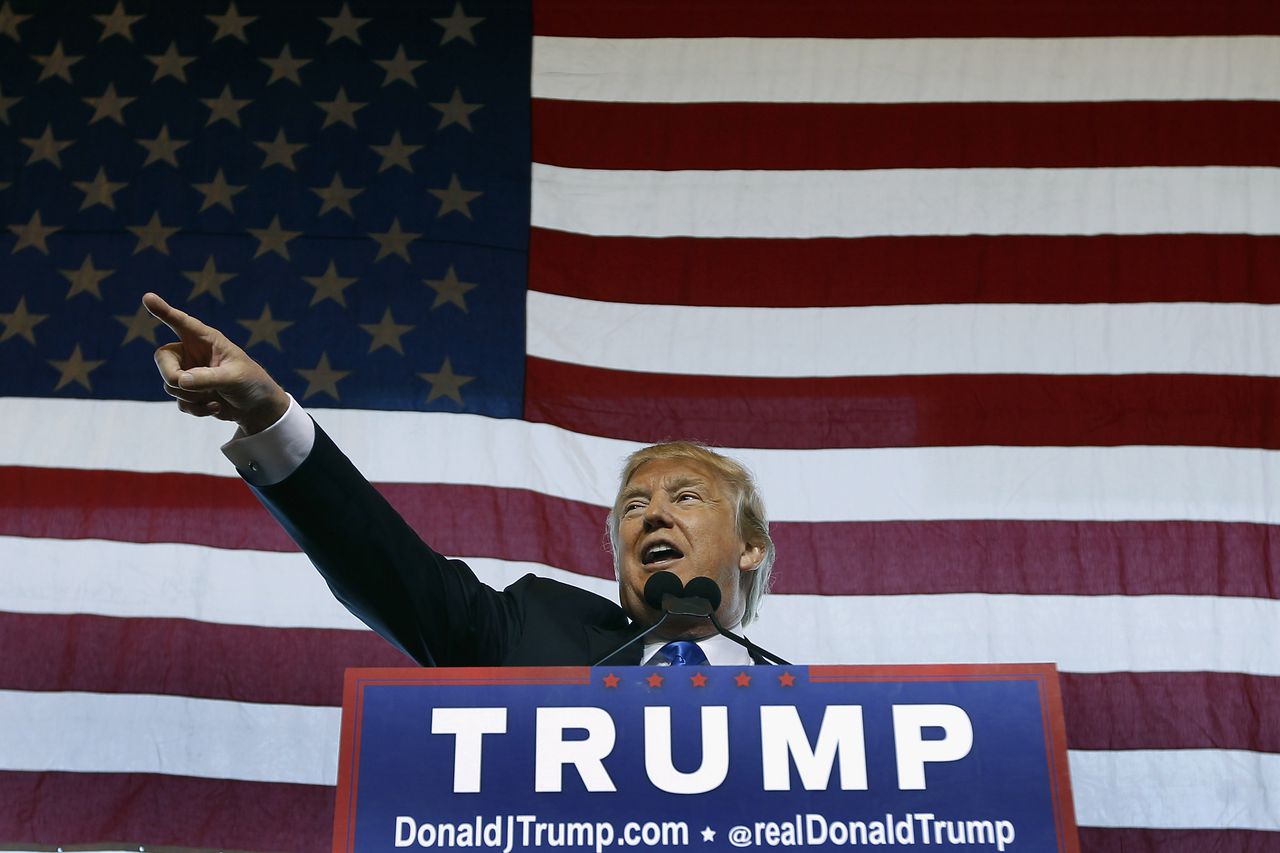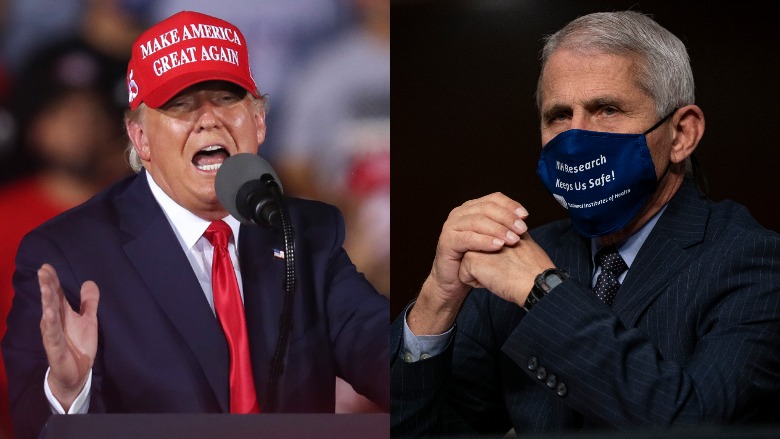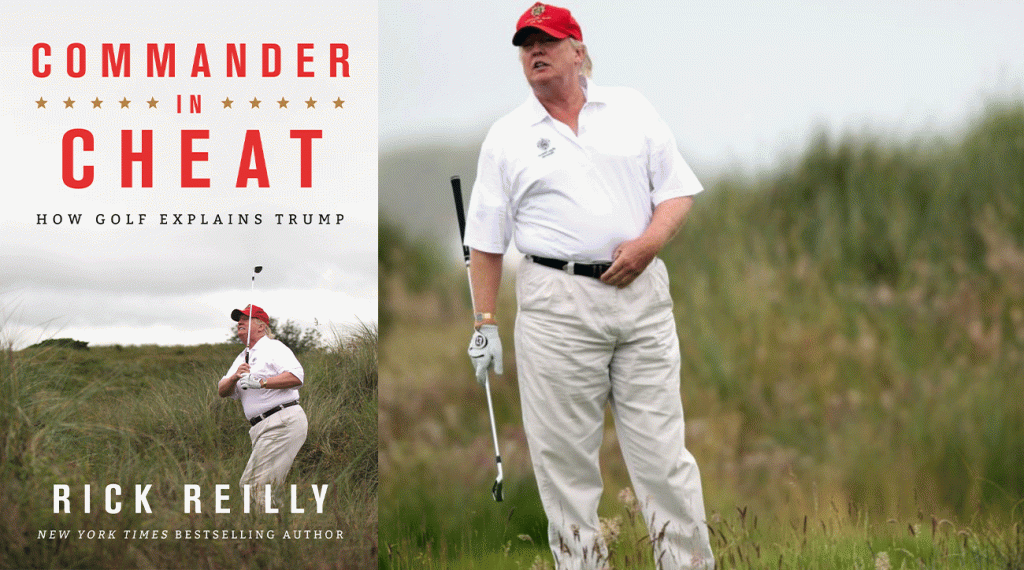
He may be a lame duck, but he will have the immense powers of a president and commander-in-chief — and nothing to lose.
S.V. Date / The Huffington Post
WASHINGTON (November 7, 2020) —Americans nervous about a president who wanted troops to shoot border crossers, and who suggested using nuclear weapons against hurricanes, could be facing the scariest days of Donald Trump’s presidency: the final ones.
As intemperate, foolhardy and reckless as many of Trump’s actions have been to date, critics warn that they all took place as Trump faced a referendum from voters. Now, that pending job review has passed.
“He will create as much chaos as humanly possible,” said Michael Cohen, Trump’s former lawyer and fixer who was convicted and sentenced to three years in prison for, in part, arranging illegal hush money payments to keep women from revealing affairs they had had with Trump just prior to the 2016 election.
“Donald Trump will take to the airwaves, to radio and print media whining about how the election was stolen from him due to fraud and foreign interference,” Cohen said. “He could never accept the fact that he lost because he is incompetent and arrogant.”
President-elect Joe Biden is set to assume the office at noon on Jan. 20, but Trump retains all of the powers of the presidency for the 74 remaining days until that moment, including his role as commander in chief of the United States armed forces and the country’s nuclear arsenal.
Trump has indicated that he is not inclined to cooperate in a transition because of the FBI’s investigation into the assistance Russia gave his campaign in 2016, something the president has characterized as “spying.”
“What about the transition I had where you spied on my campaign and you tried to take down the president of the United States?” he complained at a Pennsylvania rally last week.
The White House did not respond to requests for comment about this story.

“Either fire Wray, Fauci and Haspel and act out. Or he will behave to get good will. Will be interesting to watch. And it’s 50-50.” — A longtime Trump adviser, on how Trump may spend the final days of his presidency.
Trump offered some clues about his likely path in the three days of vote counting that followed the election. He relentlessly lied both on social media and in a 16-minute diatribe to reporters, where he accused Democrats of “stealing” the election from him and asserted ― bizarrely ― that he had already “claimed” certain states as his own. The president has had nothing on his public schedule since the election, beyond that briefing room appearance Thursday evening.
One former White House official said on condition of anonymity that worries like Cohen’s are overwrought. “I don’t think he will do anything out of the ordinary,” he said of Trump.
But a longtime adviser, who also spoke on condition of anonymity, said he can easily see Trump firing infectious disease expert Dr. Anthony Fauci, FBI Director Christopher Wray and CIA Director Gina Haspel for contradicting his various claims.
“Either fire Wray, Fauci and Haspel and act out. Or he will behave to get good will,” the adviser said. “Will be interesting to watch. And it’s 50-50.”
George Conway, who supported Trump in 2016 but soon thereafter became one of his most strident critics, said a purge is almost certain. “He’s going to fire anyone who’s ever looked at him crosswise,” said Conway, who is the husband of former top Trump aide Kellyanne Conway.
Ruth Ben-Ghiat, a historian and authoritarianism expert at New York University, agreed that Trump is likely to use his powers to “take revenge on those who are not loyal enough.”
Daniel Goldman, a former federal prosecutor who served as House Democrats’ lead lawyer during Trump’s impeachment hearings, said he predicts the president and his aides will have a busy 10 weeks or so.
“Issue all sorts of executive orders rolling back additional Obama regulations, implement new regulations without proper notice and comment, kneecap and handcuff various agencies, use the levers of power to grease the wheels for his personal financial interests post-presidency,” Goldman said. “And, of course, pardons like you’ve never seen before.”
One of Trump’s possible pardons, of course, could be for himself, to remove the threat of federal prosecution for potential crimes he may have committed, both before taking office (bank and tax fraud) and during these past four years (obstruction of justice, for example). It’s unclear whether he is actually permitted to self-pardon, but Trump has shown he is willing to break guidelines and laws when useful for him.
“No one has tried it before, so no court has considered the issue,” said Renato Mariotti, a former federal prosecutor. “It is an open question, but many people think he can’t, because the pardon clause implies that the person granting the pardon and the person receiving the pardon are different people.”
As for last-minute regulations, those can be blocked in the courts if they are improperly drafted or implemented. And any of Trump’s executive orders can be immediately rescinded by Biden after he takes office.
It’s not clear how much interest Trump will have in any of this, though, now that he has lost. Anthony Scaramucci, a longtime Trump friend and for a brief time a White House adviser, needed just two words to describe Trump’s likeliest lame-duck agenda: “Play golf.”
Trump’s Closing Message: I Will Cheat

The president finished with a pledge to not count lawful votes, attacks on the country’s coronavirus expert and praise for a treasonous Confederate general.
S. V. Date / The Huffington Post
WASHINGTON (November 7, 2020) —After four years of ignoring expertise, lying daily, and breaking both laws and “norms” with impunity, President Donald Trump headed into Election Day with a brazen pledge: that he will cheat by not counting all the ballots.
“It’s a terrible thing when people or states are allowed to tabulate ballots for a long period of time after the election is over because it can only lead to one thing, and that’s very bad,” Trump told reporters traveling with him on Sunday, as he repeated his desire to end all vote counting on Tuesday night. “As soon as that election is over, we’re going in with our lawyers.”
“He’s been laying the groundwork for this for months,” said Daniel Goldman, a former federal prosecutor and the lead lawyer for House Democrats during Trump’s impeachment over his extortion of Ukraine to help his reelection bid. “Mind-blowingly fascist.”
Trump’s scheme ― which invents a brand-new standard that would disenfranchise many millions of voters, including overseas military service members casting absentee ballots ― has also been pushed by top Trump campaign official Jason Miller.
“President Trump will be ahead on election night, probably getting 280 electorals, somewhere in that range. And then they’re going to try to steal it back after the election,” Miller told ABC News on Sunday.
The strategy of ending vote counting on election night has been discussed for weeks among the president’s supporters, including on former top White House aide Stephen Bannon’s radio show, where Miller worked prior to joining the Trump campaign earlier this year.
Because Trump has encouraged in-person voting despite the coronavirus pandemic while Democrats have called for mail-in voting ― and because Election Day votes are counted first in many states ― there is a strong likelihood that the initial vote tallies will favor the president. Bannon and others have pushed the idea of cutting off the count while Trump is ahead, even though state laws require that all cast ballots be counted before a final result is certified.
Over the years, states have taken varying amounts of time to count all their ballots, with California often needing weeks to finish. Further, most states permit ballots from military service members, diplomats and other Americans abroad that arrive as much as two weeks after Election Day to be counted, so long as they were sent by that Tuesday.
White House communications director Alyssa Farah claimed ― inaccurately ― that Trump’s desire to stop vote counting on Tuesday would not disenfranchise overseas military voters, while the Trump campaign insisted that he wanted military votes to be counted. But the Trump campaign’s deputy national press secretary, Thea McDonald, did not provide any example of the president calling for an exception for military ballots.
Jennifer O’Malley Dillon, campaign manager for Democratic nominee Joe Biden, said there was no legal basis for Trump’s demand. “He is just making that up,” she told reporters on Monday.
Bob Bauer, an elections lawyer for Biden, added: “It’s telling that President Trump is more focused on his lawyers than his voters.”
The laying out of his plan to cheat voters was just one unusual element of Trump’s closing argument, which included an admission Sunday that he would like to fire the nation’s leading infectious disease expert in the middle of a pandemic, repeated attacks on his opponent’s son’s laptop computer, and renewed attempts to win over supporters of the Confederacy, a century-and-a-half-old revolt against the United States for the purpose of perpetuating slavery.
“What a place. Never fight uphill, me boys, right? That was ― Robert E. Lee said, ‘Never fight uphill!’” Trump said wistfully last week about the Confederate general at the pivotal battle of Gettysburg. “He heard they were fighting uphill, but they didn’t have cellphones in those days. They tried to get them to stop, but they fought uphill.”
And on Monday at a rally in Fayetteville, North Carolina, Trump renewed an earlier promise to prevent the renaming of military bases that currently honor Confederate traitors.
He also mocked advice from pollsters and advisers warning him that he was losing support among college-educated women ― a group that he at one point referred to as suburban “housewives.”
“Love me, women of the suburbs. Love me,” he said at a later rally Monday in Scranton, Pennsylvania.
Trump has also complained that talking about the partial recovery from the economic downturn caused by the pandemic was too boring. “I mean, how many times can I say it? I’ll say it five or six times during the speech,” he said at a Tampa, Florida, rally on Saturday.
Focusing on a simple message that would appeal to a broader swath of the electorate was precisely the strategy that top 2016 campaign officials Bannon and Kellyanne Conway had persuaded him to adopt that October.
“We told him he had to shut the fuck up and only read what was on the prompter,” one former 2016 campaign aide told HuffPost on condition of anonymity.
And over that final month four years ago, Trump did, in fact, deliver a “disciplined” message. He almost entirely cut out media interviews and, on stage, almost exclusively stuck to the text that his speechwriters had prepared for him, which relied heavily on material stolen by Russian intelligence from the Hillary Clinton campaign and on his promises to bring back manufacturing jobs.
Once, at a rally in Pensacola, Florida, he even caught himself about to go off-script. “Stay on point, Donald, stay on point,” he said, as if repeating his aides’ warning. “No sidetracks, Donald, nice and easy.”
Four years later, Trump has been unable to repeat that feat. “Let’s get back to the teleprompter. Should we get back to the teleprompter or just keep going?” he said at a rally last week in Lititz, Pennsylvania, following a long, extraneous tangent. “Isn’t it nice to have a president that doesn’t need a teleprompter?”
Posted in accordance with Title 17, Section 107, US Code, for noncommercial, educational purposes